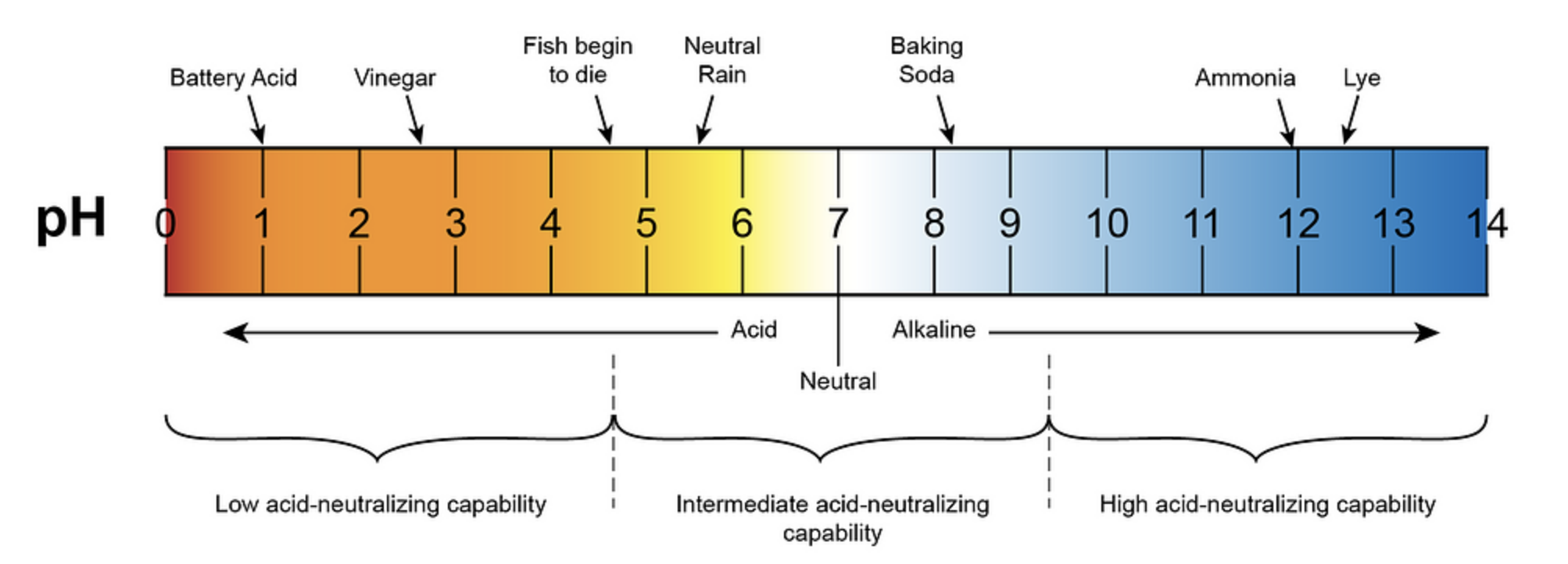The pH of barium chloride (BaCl2) in water is neutral, meaning it is neither acidic nor basic. This is because barium chloride is a salt formed by the reaction of a strong acid (hydrochloric acid) and a strong base (barium hydroxide), resulting in a neutral compound. When barium chloride is dissolved in water, it dissociates into barium ions (Ba2+) and chloride ions (Cl-), which do not affect the pH of the solution.
Understanding the Neutral pH of Barium Chloride in Water
Barium chloride is a highly soluble compound in water, and when it dissolves, it dissociates into its constituent ions. The presence of these ions, however, does not impact the pH of the solution. This is because the barium ions (Ba2+) and chloride ions (Cl-) do not react with water to form acids or bases.
The neutral pH of a barium chloride solution in water is typically around 7, which is the same as the pH of pure water. This is because the dissociation of barium chloride does not produce any hydrogen ions (H+) or hydroxide ions (OH-) that would alter the pH of the solution.
Handling Barium Chloride Safely
It is important to note that barium chloride is a highly toxic compound and should be handled with great care. Exposure to barium chloride can cause irritation to the eyes, skin, and respiratory system, and it can also damage the kidneys and have systemic effects on the human body.
When working with barium chloride solutions, it is crucial to follow safety guidelines and use appropriate personal protective equipment (PPE), such as gloves, goggles, and a well-ventilated work area. Proper disposal of barium chloride waste is also essential to minimize the risk of environmental contamination.
Identifying Contaminants in Barium Chloride Solutions
If a barium chloride solution contains other substances, such as acidic or basic contaminants, the pH of the solution may be affected. In such cases, it is necessary to identify the specific contaminants present and take appropriate measures to neutralize or remove them.
To determine the pH of a barium chloride solution, you can use a pH meter or pH test strips. If the pH is not neutral, you may need to adjust the solution by adding an acid or a base to bring the pH back to a neutral level.
Factors Affecting the pH of Barium Chloride Solutions
The pH of a barium chloride solution can be influenced by several factors, including:
- Concentration of Barium Chloride: The higher the concentration of barium chloride in the solution, the more ions will be present, but this will not affect the overall pH.
- Presence of Contaminants: As mentioned earlier, the presence of acidic or basic contaminants can alter the pH of the solution.
- Temperature: Changes in temperature can slightly affect the pH of the solution, but this effect is generally negligible.
Maintaining the Neutral pH of Barium Chloride Solutions
To maintain the neutral pH of a barium chloride solution, it is essential to:
- Use High-Purity Barium Chloride: Ensure that the barium chloride used is of high purity and does not contain any acidic or basic impurities.
- Avoid Contamination: Take precautions to prevent the introduction of contaminants into the solution, such as using clean glassware and working in a clean environment.
- Monitor pH Regularly: Regularly check the pH of the solution using a pH meter or test strips to ensure that it remains neutral.
- Adjust pH if Necessary: If the pH deviates from neutral, take appropriate measures to adjust it, such as adding a small amount of acid or base.
Conclusion
In summary, the pH of barium chloride in water is neutral, typically around 7. This is because barium chloride is a salt formed by the reaction of a strong acid and a strong base, resulting in a neutral compound. When barium chloride is dissolved in water, it dissociates into barium ions and chloride ions, which do not affect the pH of the solution.
However, it is crucial to handle barium chloride with care due to its high toxicity. Proper safety measures, such as using PPE and working in a well-ventilated area, are essential. Additionally, if the barium chloride solution contains contaminants, it is necessary to identify them and take appropriate steps to maintain the neutral pH.
By understanding the pH of barium chloride in water and following proper safety protocols, you can ensure the safe and effective use of this compound in various applications.
References:
– https://www.vedantu.com/question-answer/bacl2-is-dissolved-in-water-when-ph-of-the-class-11-chemistry-cbse-5f568514ebfa9d21d69a10fe
– https://en.wikipedia.org/wiki/Barium_chloride
– https://www.youtube.com/watch?v=abYyBpvg1sc
– https://byjus.com/chemistry/barium-chloride/
– https://pubchem.ncbi.nlm.nih.gov/compound/Barium-chloride

